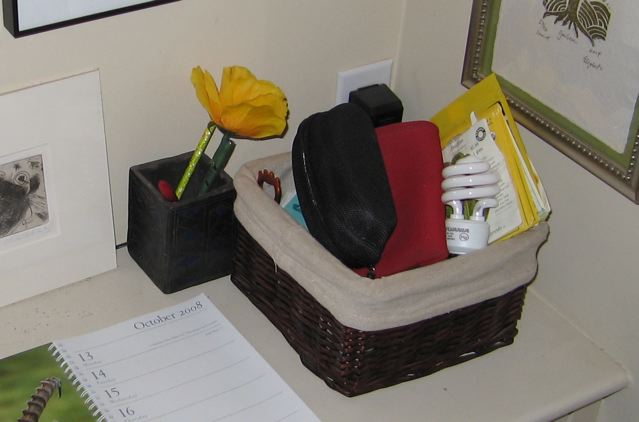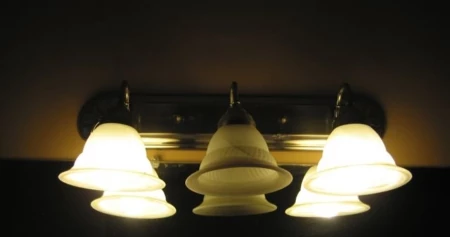Patagonia Employees’ My Footprint Series: When the Light Went Out
A new citizen is emerging. That citizen is engaged, concerned, and most of all, confident; confident in his or her choice as a consumer, confident in his or her power as an employee, confident that change is possible.
The Footprint Chronicles were developed to document the changes we’re making as a company to lighten our environmental impact and do less harm. These chronicles are as much an inspiration to Patagonia employees as they are an outgrowth of our personal values. The “My Footprint” series shares the stories of Patagonia employees who have been inspired by the Chronicles, and whose inspiring lives help fuel the vision of what we can do as a company.
Their stories are offered here, glimpses of individual footprints spotted along the path toward positive change. We invite you to enjoy these personal accounts, and share your own in the Comments included with these posts.
__________________________________________________________
The first of my compact fluorescent lightbulbs (CFL) went dark the other night. No warning, no light. I unscrewed it, shook it and screwed it back in.
Nothing.
It was disappointing. I was an early adopter of CFLs (back in the dark days before WalMart decided to sell ‘em cheap to popularize their use) and that bulb was kinda pricey. But at the time I figured it was worth it given it would last up to 15,000 hours. This one lasted maybe 15.
Above: The black hole in my bathroom. Photo: Jim Little
I was using it in a bathroom fixture above the mirror. It took three of these pigtailed double helixes to adequately light the area, and their harsh light made looking in the mirror even more horrific than usual. But in the name of energy efficiency, I chose “the right thing” over my cosmetic insecurities and my wife’s entreaties to return to the soft, soothing glow of incandescence.
The dead bulb has been lying around now for about a month in the telephone cubby. I read somewhere that fluorescents have mercury in them and you can’t be so cavalier about throwing them away.
I did some web research and that notion was confirmed. A reference in Wikipedia related the case of a Maine householder who somehow came to the attention of his state’s Department of Environmental Resources over CFL mercury contamination. The guy (or maybe it was a woman) was presented with a $2,000 estimate from an environmental cleanup firm for his toxic transgression. Turns out the amount of mercury released by a broken CFL bulb greatly exceeds EPA safety standards. Handle with care.
To my surprise, I also found out – again on Wikipedia – that “the life of a CFL is significantly shorter if it is only turned on for a few minute sat a time: In the case of a 5-minute on/off cycle, the lifespan of a CFL can be up to 85% shorter, reducing its lifespan to the level of an incandescent lamp. The U.S. Energy Star program says to leave them on at least 15 minutes at a time to mitigate this problem.”
Note to self: spend more time in the bathroom.
Well maybe the bathroom was not really the best place to try to become more energy efficient. If only I’d paid closer attention to the mirror and my wife.

Basking in the soft light of compact fluorescence. Photo: Jim Little
Googling about, I found that I could dispose of my bulb at one of those hazardous waste collection events they hold every now and again. Here in Ventura, it’s a county sponsored affair where you have to call an answering machine, leave your contact info and then two weeks later you receive a postcard telling you to meet the guys in haz mat suits at 1:12 sharp six months from a given date. Alternatively, I learned I could repatriate my spent bulb any time at any Home Depot store in the country, as long as the bulb wasn’t broken. (Yea Home Depot!)
That sounded a lot more flexible. And it seemed only right to reward The Home Depot for its willingness to take my toxic lightbulb, thereby saving me the hassle of showing up at 1:12 on a Saturday afternoon.
But there was the postcard.
About a month ago – probably about the time my faulty CFL was conspiring to expire – I signed one circulated by International Rivers. It was addressed to The Home Depot, asking it to use its capitalistic might to influence a couple of its wood product suppliers. They’re Chilean companies that are part of much bigger companies involved in a ruinous project to build huge hydro dams on a couple of wild rivers in Chilean Patagonia. Waging a market campaign, International Rivers is pressuring Home Depot to convince the Chilenos to pull out of the HidroAysen project or lose Home Depot as a customer. By signing the postcard, I agreed that until The Home Depot prevailed or refused to stop buying Chilean wood, I would not be shopping at its stores.
It’s been over a month since I signed that card and the dam project appears to be moving forward, The Home Depot is still doing business with those Chilean companies, and I still have my toxic lightbulb.

My CFL cradled gently until proper burial. Photo: Jim Little
No good deed goes unpunished. Guess I’ll be calling the County of Ventura to find out when I can turn it over to them.
One bright spot. My web research turned up a slew of jokes about lightbulbs, some of which are pretty funny.

